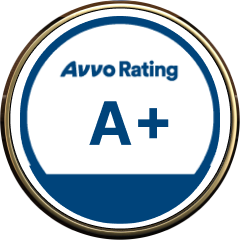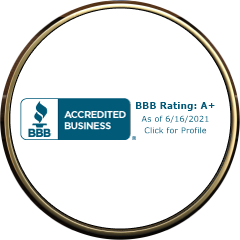Our first series of topics will address starting a business. This first blog of our Small Business Series: Small Business Startup 101 will specifically address the first step in starting your small business, choosing which business entity you want for your business. There are many business entity types for an entrepreneur to choose from. This blog post will address only three types: sole proprietorships, limited liability companies, and partnerships. If you are looking to start a new business please consult an attorney to ensure you are advised about all of your business entity options. If you would like to read more about other business entity types click on one of these links: corporations , professional limited liability companies (PLLCs) , and limited liability partnerships (LLPs).
Sole Proprietorship
A sole proprietorship is the most basic and easiest type of business an entrepreneur can start. Calling a sole proprietorship a business entity is actually somewhat confusing. Technically, a sole proprietorship is not a separate legal entity from the business owner. However, because it is an option for a small business owner we are discussing it with the business entities below.
How easy is a proprietorship to start? It only takes a few steps. First, choose a business name and search with the Texas Secretary of State to make sure that business name is not already used by another business. Second, file an assumed business name with the Secretary of State. Third, if you plan on hiring employees, obtain an Employer Identification Number (EIN) from the IRS. A sole proprietor should also research if they are required to obtain any licenses, permits, or zoning clearance before they start operating their business.
While easy and cheaper to start, sole proprietorships carry large amounts of legal and financial risk. A sole proprietor is personally liable for the debts and obligations of their business. This means that if the business is sued, the plaintiff can come after the sole proprietor’s personal assets to satisfy a judgment.
Limited Liability Company (LLC)
A limited liability company is an entity which allows its owners, called members, to have certain protections from personal liability for the debts and obligations of the company. Limited liability companies have become increasingly popular with business owners. As of January 1, 2019 there were more than 1,000,000 active LLCs in Texas. [i] Why has the LLC become so popular? Flexibility and protection.
LLCs provide their members flexibility. An LLC can be run like a “mom-and-pop” shop or like a corporation. Members of an LLC can decide together how they would like their company to look. Do they want all of the members to have a say in day-to-day operations or do they want a manager to handle day-to-day operations? If they want a manager to be in charge of day-to-day operations, do they want the manager to be a member or someone outside of the company? Do the members want the company to have a board of directors? These are just some of the management options available to members of an LLC.
LLCs also provide their members with tax flexibility. LLCs can be taxed as disregarded entities (like sole proprietorships), partnerships, C-corporations, or S-corporations. Each tax election has its own benefits and drawbacks. It is always recommended that you talk with your attorney and accountant to determine which tax election is best for your situation.
LLCs also provide their members liability protection. Members of an LLC are generally not liable for the debts and obligations of the company. We say generally, because there are circumstances in which that liability protection can be lost, such as by failing to follow certain corporate formalities. This liability protection is a huge advantage for LLC members as it protects their personal assets possibly helping remove the specter of “losing everything” from looming over them.
Forming an LLC requires the filing of a Certificate of Formation with the Secretary of State and paying a filing fee. If an LLC wants to operate under a name that is different from the legal name of the company, an assumed name certificate must be filed as well. It is also highly recommended that an LLCs members sign a company agreement to govern their rights and duties with respect to one another, as well as describe how profits will be split, how the company will operate, and other important matters.
Partnership
The final entity discussed is a partnership. Partnerships come in many shapes and sizes. This blog only addresses the basics of partnerships. General partnerships are the most basic form of partnerships. All that is required to form one is filing a limited number of forms with the Secretary of State. Though it is not required it is worth considering drafting and signing a partnership agreement. In a general partnership each partner has unlimited personal liability for the debts and obligations of the business. In this way it is similar to a sole proprietorship, but with more than one person sharing in the profits of the business.
A limited partnership (LP) is a type of partnership that has one or more general partners and one or more limited partners. In an LP only the general partner can participate in the management of the business. However, the general partner has unlimited liability for the debts and obligations of the business. The limited partners cannot participate in the management of the business, but are also, generally, not liable for the debts and obligations of the business.
A limited partnership may be a good entity choice for a small business owner who wants to attract “silent” investors and does not mind taking on liability as a general partner.
The three entity types discussed are but a few of many entity types a small business owner can choose from. Every entity type has its own advantages and disadvantages. One entity may be appropriate for one business and inappropriate for another. It is always wise to consult an attorney who can discuss your business goals, limitations, industry, and other matters with you to advise and assist you in forming your business.
Related Topics
Related Blogs
[i] Byron Egan, “Choice of Entity and Tax Considerations” (2019) for the TexasBarCLE Essentials of Business Law: Practical Considerations.
The post Small Business Startup 101: Choosing a Business Entity appeared first on Estorga Law Firm, PLLC.













